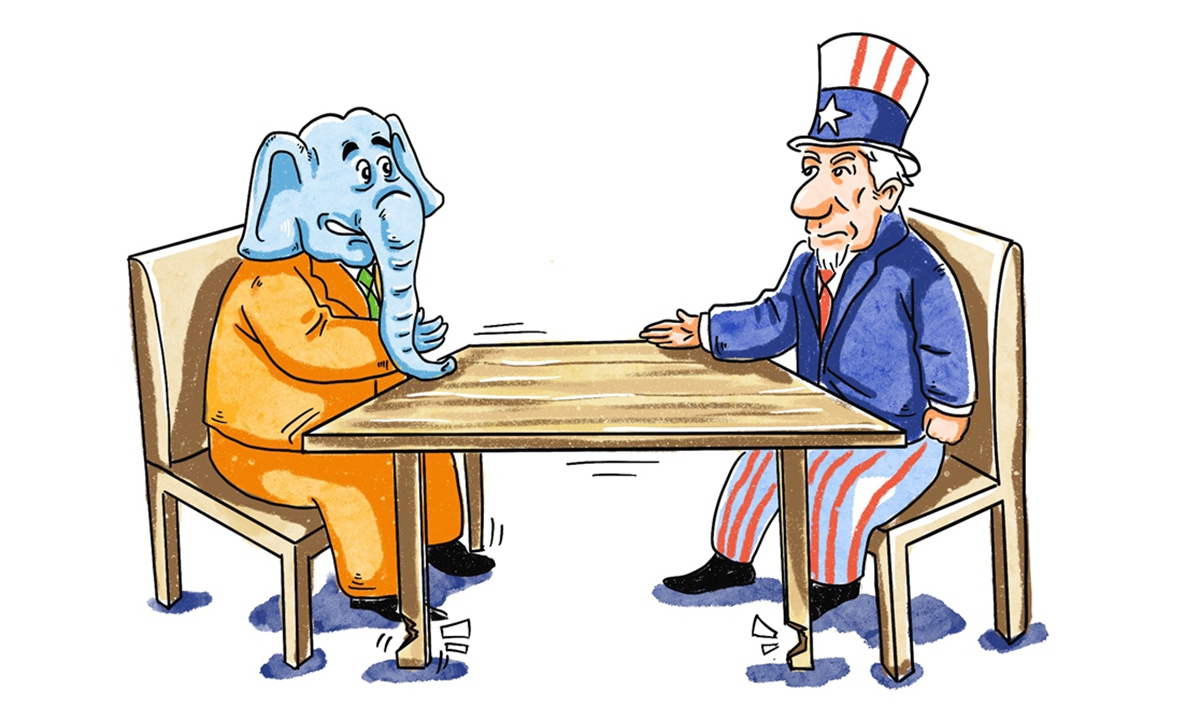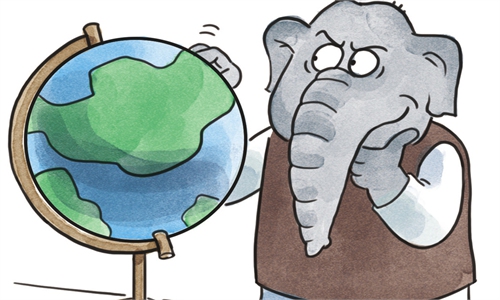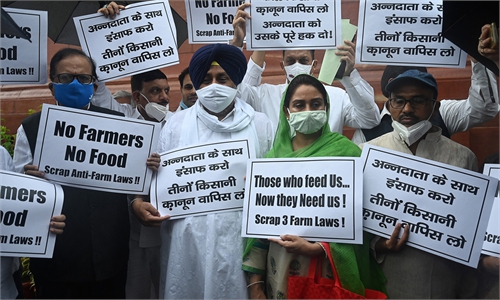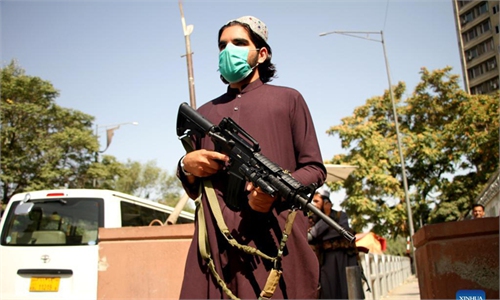
Illustration: Tang Tengfei/GT
The power shift in Afghanistan and its impact on India's geopolitics have triggered widespread attention in India.Some voices are very negative. For example, New Delhi-based the Print on August 26 published an article entitled "India backed the wrong horse in Afghanistan, and has gone into a strategic sulk now." Happymon Jacob, associate professor at New Delhi-based Jawaharlal Nehru University, was quoted by Al Jazeera on Sunday saying that "I think India seems to be out of the game in Afghanistan." Some analysts anticipate that India's $3 billion investments in Afghanistan are going down the drain.
India has long been hostile to the Taliban. And the Taliban has attacked Indian targets during the past two decades. As a result, India had ramped up efforts to coordinate with the US-backed Kabul government. This resulted in a vicious circle and deeper animosity between India and the Taliban.
Having long been at odds with Pakistan, India has been attempting to expand its influence in Afghanistan to counter Islamabad. During the past two decades, India has seen Afghanistan as a trump card to play against Pakistan. But the Taliban taking over Afghanistan has now deprived India of this card. Because of the relations between Afghan Taliban and Pakistan and factors related to history, ethnicity and religion, as the Taliban amasses more authority in Afghanistan, they will tilt toward Pakistan when handling relations with India and Pakistan.
Furthermore, in recent days, China's active, neutral, conciliatory and impartial manner toward Afghanistan has been welcomed by many Afghans, including the Taliban. They have recently shown their goodwill toward China. The group said on multiple occasions that it hopes to grow sound relations with China, and looks forward to its participation in Afghanistan's reconstruction and development. They pledged that their country will never allow any force to use the Afghan territory to engage in acts detrimental to China, such as terrorism attack.
The Indian foreign ministry was quoted by Reuters that Indian Ambassador to Qatar Deepak Mittal on Tuesday held talks with Sher Mohammad Abbas Stanekzai, the head of the Taliban's Political Office in Doha. But no information suggests that the Taliban has shown the sort of goodwill it has demonstrated to China. India is also anxious that China's geopolitical influence will grow, which is not good news in the eyes of Indians who are in spat with China.
New Delhi might have been in a helpless position to back "the wrong horse in Afghanistan." Due to its long standing hostility against the Taliban, especially after the US invaded Afghanistan, New Delhi has followed Washington's move closely, cooperating with US-backed Kabul government. However, India's strategic nightmare has finally come true.
Since the Doha agreement signed between the US and Taliban in 2020, some major powers, including the US, have sought various means to be in touch with Taliban leaders. But New Delhi was not among them. The country did not have any official meetings with Taliban leadership prior to the fall of Kabul. This put India into a very passive situation.
Moreover, New Delhi naïvely believed that Washington would not withdraw its troops so promptly and irresponsibly without communicating with its allies and partners. The US' hasty withdrawal from Afghanistan will to some extent shake the Indian strategic community's confidence in the US' credibility as well as the US' ability and willingness to fulfill its commitments to its allies and partners.
However, it will not fundamentally affect India's close strategic cooperation with the US. The root cause of New Delhi inching closer to Washington is to deal with the challenge India has felt from China's rise. New Delhi's frustration with Afghanistan will not alter the intention of mainstream strategic elites in India who advocate upgrading relations with the US into a quasi-alliance relationship. Afghanistan is a small part of India's strategy. India is more concerned with how to handle discord with China and Pakistan. In this regard, New Delhi still heavily relies on Washington.
The author is director of the research department at the National Strategy Institute at Tsinghua University. opinion@globaltimes.com.cn



